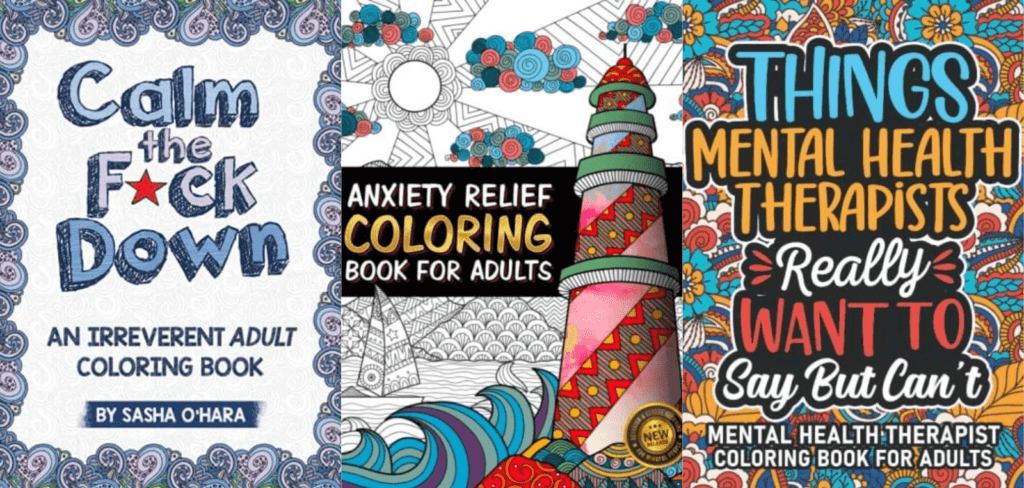This post contains a list of reasons why do we dissociate.
What is Dissociation?
Dissociation, including its specific forms such as depersonalization and derealization involves a disconnect from reality—not just in terms of one’s surroundings but also from one’s own self.
Dissociation can manifest as a feeling of watching yourself from outside your body or seeing the world around you as foggy and unreal.
People may experience time distortion, a sense of numbness, or a lack of connection to the world or their own emotions.
Dissociation can manifest in various forms, ranging from mild detachment from immediate surroundings to more severe forms such as dissociative identity disorder (DID).
However, dissociation can also be a symptom of other issues like PTSD and extreme stress.
Common symptoms include a sense of the world being unreal, memory loss (amnesia), seeing oneself from outside one’s body, and a lack of connection with reality or identity.
Related: Best 11 Grounding Techniques For Dissociation
Why Do We Dissociate?
1. Trauma and Stress
The most common cause of dissociation is trauma, especially prolonged exposure to stressful situations such as abuse during childhood.
When the mind is subjected to intense stress, dissociation can occur as a protective mechanism.
The brain attempts to insulate the individual from the full impact of trauma by creating psychological distance from the event.
2. Survival Mechanism
Evolutionarily, dissociation may have served as a survival mechanism.
In life-threatening situations, the ability to detach from the pain or terror could allow individuals to maintain function or prevent overwhelming fear from incapacitating necessary responses.
3. Developmental Trauma
In children, particularly those who face early and persistent emotional, physical, or sexual abuse, dissociation can develop as a method of maintaining a semblance of normalcy in day-to-day functions.
It can also emerge as a facet of their psychological development, ingraining dissociative patterns into their adult lives.
Related: 12 Tips On How To Help Someone With Dissociation?
Psychological and Neurological Underpinnings
Dissociation involves complex neurological processes.
Stress and trauma can trigger the brain to release hormones that alter neural pathways.
Over time, if an individual repeatedly enters a dissociative state, these pathways can strengthen, making dissociation a more readily accessible response to stress.
Effects of Chronic Dissociation
While occasional dissociation can be a benign escape from minor stress, chronic dissociation can severely impact an individual’s life.
It can interfere with the formation of memories and disrupt personal and professional relationships.
Over time, persistent dissociation can complicate an individual’s emotional response system, leading to difficulties in distinguishing between past trauma and present situations, often causing inappropriate reactions to everyday events.
Related: How To Feel Safe In Your Body?
Managing and Treating Dissociation
Understanding dissociation’s origins is the first step toward addressing its effects. Treatment typically involves therapy, particularly modalities that focus on trauma, such as:
– Cognitive Behavioral Therapy (CBT): Helps patients recognize and change thought patterns that lead to dissociation.
– Eye Movement Desensitization and Reprocessing (EMDR): Involves processing and integrating traumatic memories that may be at the root of dissociative symptoms.
– Dialectical Behavior Therapy (DBT): This therapy emphasizes being present in the moment and is particularly effective in treating individuals with significant emotional dysregulation or those who exhibit self-destructive behaviors as a part of their dissociation.
Coping Strategies
For those experiencing dissociative symptoms, several strategies can help manage their occurrence:
– Mindfulness and Grounding Techniques: Practices like meditation, yoga, and mindfulness can help individuals remain connected to the present moment, reducing the frequency of dissociative episodes.
– Healthy Lifestyle Choices: Regular exercise, a nutritious diet, and sufficient sleep can reduce the body’s stress levels and decrease the likelihood of dissociation.
– Support Systems: Engaging with supportive friends, family, or support groups can provide stability and reduce feelings of isolation.
Related: Best 10 Grounding Meditation Exercises

Conclusion
Dissociation is a multifaceted defense mechanism that serves to protect individuals from psychological pain but can become problematic when it interferes with normal functioning.
By understanding the triggers and underlying causes of dissociation, individuals can seek appropriate treatment and develop coping strategies that foster a healthier engagement with the world around them.
Therapy, combined with supportive care and self-help strategies, can significantly improve outcomes for those affected by dissociative disorders.
As awareness and understanding of dissociation grow, the stigma surrounding it decreases, leading to more people seeking and receiving the help they need to lead fulfilling lives.



